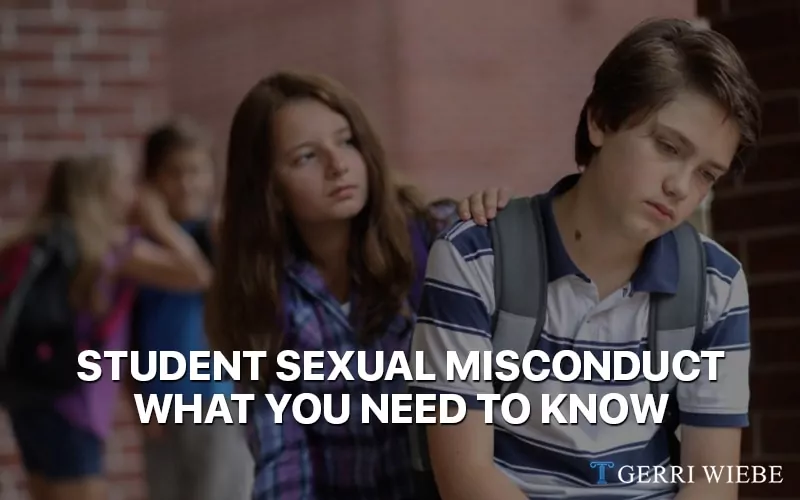Sexual
harassment is any unwelcome conduct of a sexual nature. It includes, but is not
limited to, unwanted sexual advances, requests for sexual favors, and other
verbal or physical conduct of a sexual life under the following circumstances.
It is also a submission to such behavior (explicitly or implicitly) in a
course, program, or activity. Sexual harassment, as well as false sexual
assault in any situation, is reprehensible.
A
recent survey found that 11.4 percent of all students said they had experienced
some form of non-consensual sexual behavior in the past year. However, that
percentage jumps to 22.5 percent of undergraduate students and decreases to 9.2
percent of graduate students. Universities and colleges are strict on the
principle that its students, administration, faculty, and staff have the right
to be free from harassment. Harassment in any form, including sexual
discrimination in the form of sexual harassment by or towards any member of the
university community, will not be tolerated.
Report On Bad Sexual Conduct
Sexual
misconduct includes all incidents of non-consensual sexual contact, as well as
sexual exploitation and sexual harassment. Colleges and campuses are committed
to responding appropriately to incidents of sexual misconduct and do everything
possible to ensure a safe and non-hostile environment for all students. Schools
and universities strongly encourage all students to report incidents and will
not tolerate any form of retaliation for reporting.
By reporting incidents, students can help in staffing efforts to ensure a safe and welcoming environment for everyone. However, if you have been somehow wrongly accused of sexual assault and you are innocent (proven or not), you should immediately report the faculty as well as hire an assault lawyer.
Reports
made directly to an assault lawyer are protected by confidentiality laws and
will not be shared beyond that meeting unless the threat to health or safety is
imminent. To the extent possible, a lawyer will respect the student’s request
to remain anonymous and keep the detail of the report confidential. However,
the demand for confidentiality will be weighed against the obligation to act on
the information it has received.
Students Who Have Experienced Sexual Misconduct May Choose To Take The Following Actions:
- File a criminal report with the police.
- File a formal complaint with the Campus’s coordinator.
However,
students who choose not to follow any of the above options may do the
following:
- Consult an Assault lawyer.
- Seek counseling.
- Request a reordering of class or housing schedule.
- Request a no-contact order.
- Request other preparations.
Examples
of sexual exploitation include, but are not limited to:
- Invasion of sexual intimacy;
- Prostituting another student;
- Non-consensual video or audio recording of sexual activity;
- Go beyond the limits of consent (such as letting your friends hide in the closet to see you have consensual sex);
- Participate in voyeurism;
- Expose one’s genitals in the circumstances not agreed upon; induce another to expose their genitals;
- Sexual harassment and intimidation can also be forms of sexual exploitation.
For more information about your rights under the law, call our assault lawyers today. Contact us to discuss Assault Charges today.
